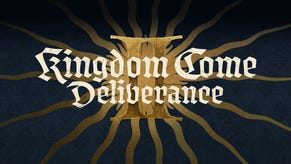Don't fear the future: Metro 2033 and Darksiders revisited
While THQ's lofty goals may have proven too great a stretch, sequels to Metro 2033 and Darksiders are two of 2012's most anticipated core titles. Patrick Garratt looks at the potential of the classic originals.
New IPs need to be sequelised to realise their potential, something Metro 2033 and Darksiders had in embarrassing abundance. While the vision of Danny Bilson's THQ becomes a little misty after this year, there's little doubt it will deliver two of 2012's most important core games outside the traditional September-November silly season.
While THQ's future is inarguably dim, its 2012 shines bright. The sequels to Metro 2033 and Darksiders won't sell in the sort of numbers needed to cement its place in the hallowed top five publisher club, but THQ knows both games will beat seven figure units this year and are likely to be well-sought by the core community.
THQ is currently in the process of ramping up PR on Darksiders II - keep watching; we're seeing Death's take on Vigil's greatest universe in San Francisco today - so I thought I'd get up to speed on the original over Christmas after revisiting Metro 2033.
Metro has to be one of this generation's most undiscovered shooters. I tried to play it on 360 when it released in early 2010, but didn't get beyond the first few hours; the shooting mechanics felt stodgy and the controls laboured. THQ gifted me a Steam code late last year, and it makes a world more sense on PC; a world in that it's one of the most solid creations of physical fiction I've yet seen in a game.
Ukranian developer 4A's shooter-adventure is part of the same school as GSC's S.T.A.L.K.E.R., a lesson in nuclear pressure and gas mask chic. Artyom has grown up in Moscow's underground system after the bomb, a world of mutants, Nazism and survival. In a plot which employs combat against flank-happy fascists and communists at its most realistic, and a set of terrifyingly hard librarians - tip: they're not really librarians - at its most ludicrous, Metro sends Artyom on a journey of discovery to defend mankind's remnants from a virulent strain of ET-alikes.
Metro's success is in the believability of its rules. You cannot help but be immersed. Your weapons range from military grade to make-do, from sniper rifles to pneumatic contraptions fed by ball bearings which need to be pumped to work. The battery on your torch, too, needs to be manually charged with repeated mouse clicks on a crank handle. Gas masks necessary for overground sections get damaged in fights, forcing you to find repairs, and they use timed filters you need to switch when breathing becomes laboured and you visor freezes up with dirty breath. Your wrist watch tells you when you're about to suffocate; you're mindful of it, or you die. Metro play is a melange of tool management and claustrophobic combat, of night vision and idealism. It's a rich, frightening place.
It's not perfect by good way. There's an infuriating trial-and-error section right at the end, and I finished it in around six hours - there's no real reason to go back other than to play it on a harder setting - but it's such a different experience to the general glut of military FPS that the sequel is now one of my most anticipated games. Last Light is being marketed in its highest form on PC, and that's where I'll be playing. Brenna saw the current demo at TGS last autumn and was knocked out. Improvements to AI, stealth, weapons and general tech are all promised. It's down for a summer release, and this should definitely be on your watch list for the year.
And if you haven't played the original, sort it out. It's €10 on Steam and €11 for 360 on Play, the first place I looked. There's no excuse.
War is here
THQ's second main core sequel this year is Vigil's Darksiders II. I brushed over the original thanks to it releasing in quite an odd early January slot in 2010, despite the fact I was excited for it, and only played the first two hours at launch. I went straight onto the PC version after completing Metro, and there I remain; I'm about halfway through at eight hours.
Again, Darksiders is an under-acknowledged gem, and, again, it's a little raw. The Four Horsemen are charged with keeping balance between Heaven, Hell and earth. There's a plot involving seven seals and a mystery rogue element, but it boils down to War, the horseman summoned erroneously to earth after an epic battle breaks out between angels and demons, on a mission to clear his name and restore celestial order.
The favourite Darksiders cliché is to dub it a prettified Zelda clone, but that doesn't do it justice. Yes, it's a (very) similar formula, but the dedication to its presentation, especially at top PC settings, is a true wonder. War's world of bosses and puzzles is a linear procession which is at times "awesome" enough to draw squeals. War must collect the hearts of the Chosen for a demon ally, the first of which is a dragon named Tiamat. She's hard. I nearly punched the screen when I killed her in an unforgettable rooftop encounter. You question her then pull her heart out: it sits throbbing in your gloved hand. That's what third-person cartoon action should be about, clearly.
The controls and camera can frustrate at points, but the robustness of Darksiders as an overall work is substantial. That said, it never quite reaches the overall high it aspires to; it's all too easy to buy certain moves from Vulgrim, the game's demon vendor, and settle into near-indestructible mouse and button combinations with general enemies, with War's vertically spinning sword move stunning and his scythe used as crowd control. It's a shame Vigil couldn't quite find proper balance in the combat; many of the available upgrades are rendered a little unnecessary as a result.
Whatever the niggles, though, Darksiders is as essential for its vision as it is for its spectacle. As with the Metro follow-on, Darksiders II could be a stand-out game this year if Vigil, as promised, has ironed out the creases. New IPs need to be sequelised to realise their potential, something Metro 2033 and Darksiders had in embarrassing abundance.
While the vision of Danny Bilson's THQ becomes a little misty after this year, there's little doubt it will deliver two of 2012's most important core games outside the traditional September-November silly season. Missing them would be stupid. Go back to the originals in the meantime to remind yourself why.





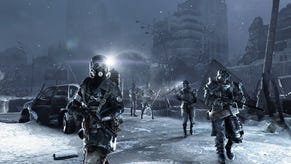
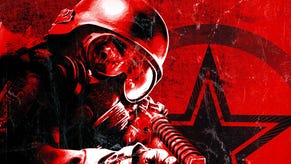
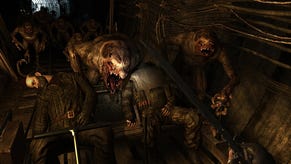


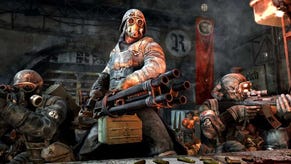
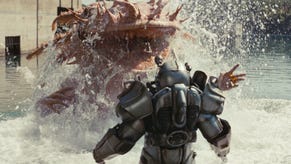
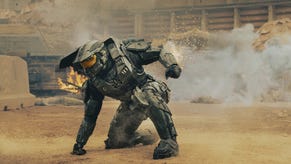
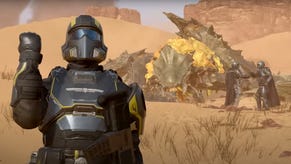
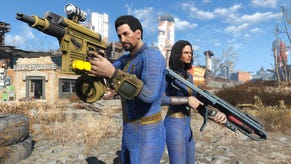
.jpg?width=291&height=164&fit=crop&quality=80&format=jpg&auto=webp)

